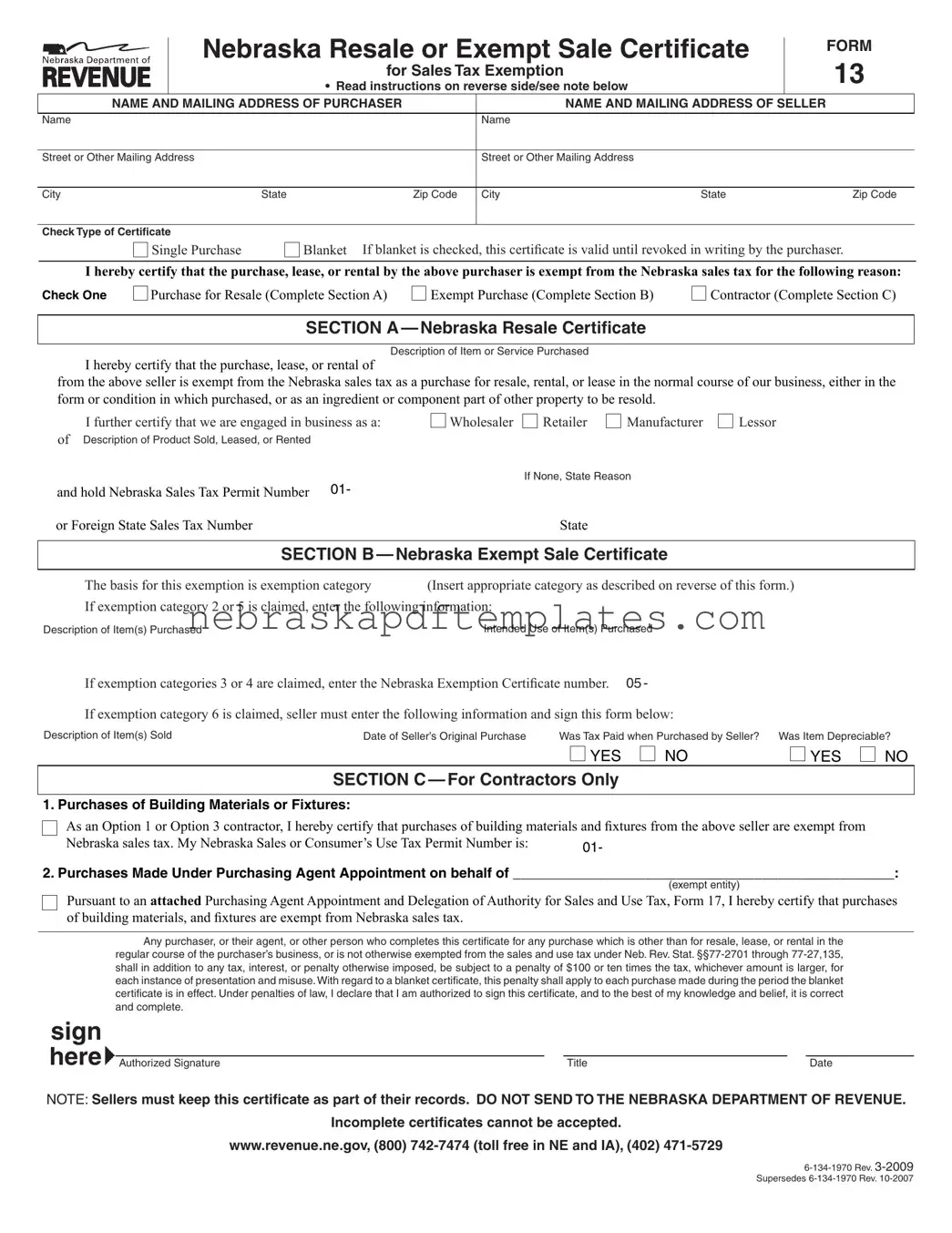Blank Nebraska Sales Tax PDF Template
The Nebraska Sales Tax Form, specifically Form 13, is a certificate used by purchasers to claim exemptions from sales tax for certain transactions. This form allows businesses and organizations to certify that their purchases are exempt due to resale or specific exemptions outlined by Nebraska law. To ensure compliance and proper use, it is essential to fill out this form accurately.
Ready to complete the Nebraska Sales Tax Form? Click the button below to get started.
Access Editor Here

Blank Nebraska Sales Tax PDF Template
Access Editor Here
Finish your form now
Finalize Nebraska Sales Tax online — edit, save, and download effortlessly.
Access Editor Here
or
➤ Nebraska Sales Tax
